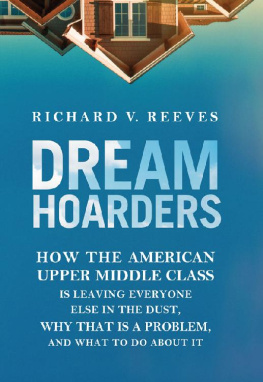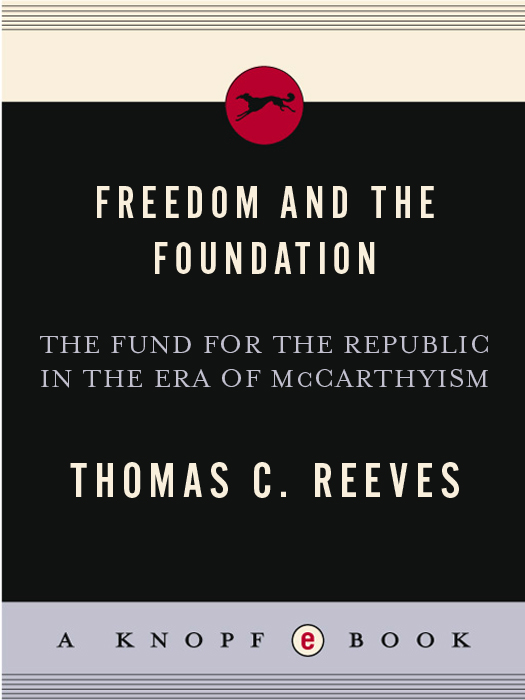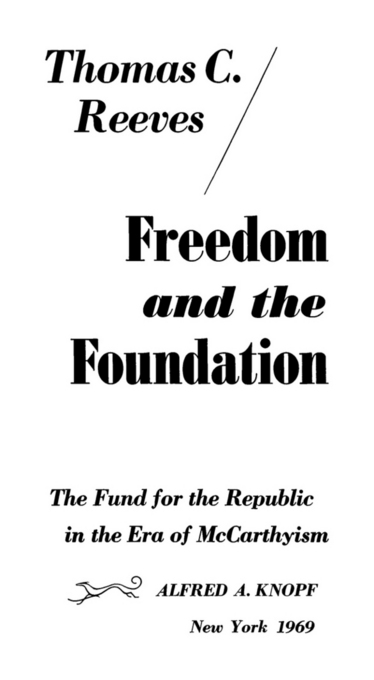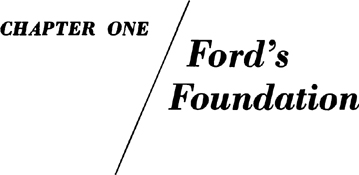Thomas Reeves - Freedom and Foundation
Here you can read online Thomas Reeves - Freedom and Foundation full text of the book (entire story) in english for free. Download pdf and epub, get meaning, cover and reviews about this ebook. year: 2013, publisher: Knopf Doubleday Publishing Group, genre: Politics. Description of the work, (preface) as well as reviews are available. Best literature library LitArk.com created for fans of good reading and offers a wide selection of genres:
Romance novel
Science fiction
Adventure
Detective
Science
History
Home and family
Prose
Art
Politics
Computer
Non-fiction
Religion
Business
Children
Humor
Choose a favorite category and find really read worthwhile books. Enjoy immersion in the world of imagination, feel the emotions of the characters or learn something new for yourself, make an fascinating discovery.

- Book:Freedom and Foundation
- Author:
- Publisher:Knopf Doubleday Publishing Group
- Genre:
- Year:2013
- Rating:4 / 5
- Favourites:Add to favourites
- Your mark:
Freedom and Foundation: summary, description and annotation
We offer to read an annotation, description, summary or preface (depends on what the author of the book "Freedom and Foundation" wrote himself). If you haven't found the necessary information about the book — write in the comments, we will try to find it.
Freedom and the Foundation is a study in depth of the first and most controversial of the tax-exempt foundations dedicated to research and public education in the field of civil liberties and civil rights: The Fund for the Republic.
The story of its struggle for survival, as Mr. Reeves demonstrates, exemplifies the broader conflict between Americas liberal and conservative forces in the early 1950s. The Fundcreated in 1952 by the Ford Foundationwas set up to explore possibilities for liberalizing American society at the very time when, under the hysterical goading of Senator Joseph McCarthy, the forces of repression had reduced dissent to a hoarse whisper.
Reeves tells of the mounting criticism when, less than two years after the Funds launching, the noted educator and thinker Robert Hutchins became its president. He shows how, as the Fund attempted to follow its mandate under the leadership of Hutchins and his vice-president, W.H. Ferry, it encountered vociferous and persistent attack from powerful and entirely predictable sources, and became a magnet for all the political crosscurrents of the day. With a subtle feeling for the atmosphere of the McCarthy era, the author carries the reader into the Funds first crisis, when it was brought before HUAC by the superpatriotic organizations and its other ultraconservative enemies. He describes the many clashes between Hutchins and his detractors in Congress and the presssuch adversaries as Chairman Francis Walter of HUAC and the columnist-commentator Fulton Lewis, Jr.
The account of the Funds inception and development, of its accomplishments in creating, sponsoring, and disseminating ideas useful to the nationof its inner conflicts and politicking as well as its struggle to makes its way in the outside worldis not only fascinating in itself, but particularly timely in the light of the recent Congressional investigations of the tax-exempt foundations.
Professor Reevess study is based on the files, reports, and publications of the Fund for the Republic (the first foundation to makes its complete files available to scholars), which are now at Princeton University, and on scores of interviews with Fund staff members, partisans, and critics, as well as more than five years of examining the more conventional source material.
Thomas Reeves: author's other books
Who wrote Freedom and Foundation? Find out the surname, the name of the author of the book and a list of all author's works by series.

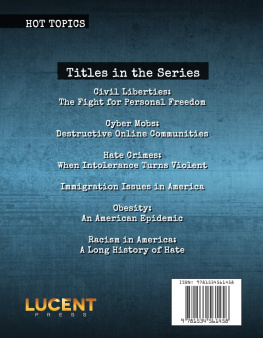

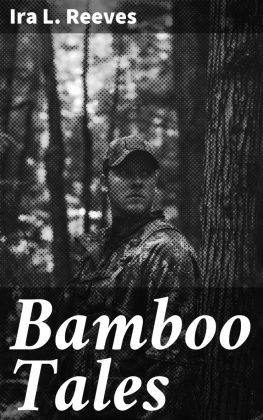

![Richard Reeves [Richard Reeves and John Knell] - 80 Minute MBA](/uploads/posts/book/127988/thumbs/richard-reeves-richard-reeves-and-john-knell-80.jpg)

